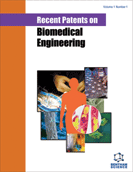Abstract
The anterior cruciate ligament (ACL) is important for knee stability and kinematics. Unfortunately, it is also the most commonly injured ligament of the knee and due to its poor healing potential, severe damage warrants surgical intervention including complete replacement. Current ACL replacements have a host of limitations that prevent their extensive use. Thus, investigators have begun to pursue tissue engineering techniques to create new options for the repair, regeneration, and replacement of the ACL. These options involve devices that are mechanically functional tissue engineered scaffolds and as such are designed to withstand normal mechanical loads while promoting ligament development. This article presents background on the ACL and its replacement, novel replacement approaches utilizing natural polymers, synthetic polymers, and natural tissues, and recent patent coverage.
Keywords: Anterior cruciate ligament (ACL), silk, poly (L-lactic acid) (PLLA), xenograft, scaffold, polymer, tissue engineering
 15
15

